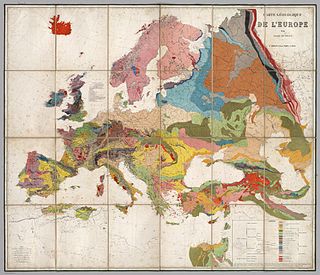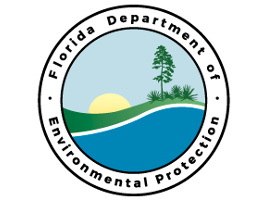
Environmental law, also known as environmental and natural resources law, is a collective address environmental pollution. A related but distinct set of regulatory regimes, now strongly influenced by environmental legal principles, focus on the management of specific natural resources, such as forests, minerals, or fisheries. Other areas, such as environmental impact assessment, may not fit neatly into either category, but are nonetheless important components of environmental law.

Tallahassee is the capital city of the U.S. state of Florida. It is the county seat and only incorporated municipality in Leon County. Tallahassee became the capital of Florida, then the Florida Territory, in 1824. In 2017, the population was 191,049, making it the 7th-largest city in the U.S state of Florida, and the 126th-largest city in the United States. The population of the Tallahassee metropolitan area was 382,627 as of 2017. Tallahassee is the largest city in the Florida Panhandle region, and the main center for trade and agriculture in the Florida Big Bend and Southwest Georgia regions.

Environmental science is an interdisciplinary academic field that integrates physical, biological and information sciences to the study of the environment, and the solution of environmental problems. Environmental science emerged from the fields of natural history and medicine during the Enlightenment. Today it provides an integrated, quantitative, and interdisciplinary approach to the study of environmental systems.

Turbidity is the cloudiness or haziness of a fluid caused by large numbers of individual particles that are generally invisible to the naked eye, similar to smoke in air. The measurement of turbidity is a key test of water quality.
Environmental protection is the practice of protecting the natural environment by individuals, organizations and governments. Its objectives are to conserve natural resources and the existing natural environment and, where possible, to repair damage and reverse trends.

The National Environmental Policy Act (NEPA) is a United States environmental law that promotes the enhancement of the environment and established the President's Council on Environmental Quality (CEQ). The law was enacted on January 1, 1970. To date, more than 100 nations around the world have enacted national environmental policies modeled after NEPA.

Environmental justice emerged as a concept in the United States in the early 1980s. The term has two distinct uses with the more common usage describing a social movement that focuses on the fair distribution of environmental benefits and burdens. The other use is an interdisciplinary body of social science literature that includes theories of the environment and justice, environmental laws and their implementations, environmental policy and planning and governance for development and sustainability, and political ecology.

Environmental assessment (EA) is the assessment of the environmental consequences of a plan, policy, program, or actual projects prior to the decision to move forward with the proposed action. In this context, the term "environmental impact assessment" (EIA) is usually used when applied to actual projects by individuals or companies and the term "strategic environmental assessment" (SEA) applies to policies, plans and programmes most often proposed by organs of state. Environmental assessments may be governed by rules of administrative procedure regarding public participation and documentation of decision making, and may be subject to judicial review.
The Caribbean Law Institute (CLI) was established in 1988 under a grant from the United States Agency for International Development to promote such activities that would further clarify the laws affecting trade, commerce and investment in the Region, while at the same time respecting the unique needs of local jurisdictions.
The New South Wales Office of Environment and Heritage (OEH), a former division of the Government of New South Wales between April 2011 and July 2019, was responsible for the care and protection of the environment and heritage, which includes the natural environment, Aboriginal country, culture and heritage, and built heritage in New South Wales, Australia. Until its abolition in 2019, the OEH supported the community, business and government in protecting, strengthening and making the most of a healthy environment and economy within the state. The OEH was part of the Department of Planning and Environment cluster and managed national parks and reserves.
Environmental planning is the process of facilitating decision making to carry out land development with the consideration given to the natural environment, social, political, economic and governance factors and provides a holistic framework to achieve sustainable outcomes. A major goal of environmental planning is to create sustainable communities, which aim to conserve and protect undeveloped land.

The Florida Fish and Wildlife Conservation Commission (FWC) is a Florida government agency founded in 1999 and headquartered in Tallahassee. It manages and regulates the state's fish and wildlife resources, and enforces related laws. Officers are managers, researchers, support personnel, and perform law enforcement in the course of their duties.

The College of Arts and Sciences, the largest of the 16 colleges at Florida State University, contains the majors of nearly 11,000 students and is made up of 18 departments, nine interdisciplinary programs and 11 centers and institutes. Nearly 2,000 degrees are issued to graduates each academic year. The college encompasses the fields of social sciences, liberal arts, mathematics, sciences and interdisciplinary studies.
The Florida State University College of Nursing, is the nursing school of the Florida State University. About 553 students are enrolled in classes, including undergraduates and graduate students. All programs are accredited by the Commission on Collegiate Nursing Education.

Student housing at Florida State University is governed by the Office of University Housing, and provides housing for undergraduates, graduate students, and professional students on and off-campus. Overall about 85% of first time in college students live in residence halls. In addition over 20% of all undergraduates live in student housing.

The California Department of Pesticide Regulation, also known as DPR or CDPR, is one of six boards and departments of the California Environmental Protection Agency (Cal/EPA).
The Environmental Protection Agency, is an agency of Ministry of Environment, Science Technology and Innovation, established by EPA Act 490 (1994). The agency is dedicated to improving, conserving and promoting the country’s environment and striving for environmentally sustainable development with sound, efficient resource management, taking into account social and equity issues. It oversees the implementation of the National Environment Policy. EPA Ghana's mission is to manage, protect and enhance the country’s environment and seek common solutions to global environmental problems. Its mission is to be achieved through an integrated environmental planning and management system with broad public participation, efficient implementation of appropriate programmes and technical services, advice on environmental problems and effective, consistent enforcement of environmental law and regulations. EPA Ghana is a regulatory body and a catalyst for change to sound environmental stewardship.











